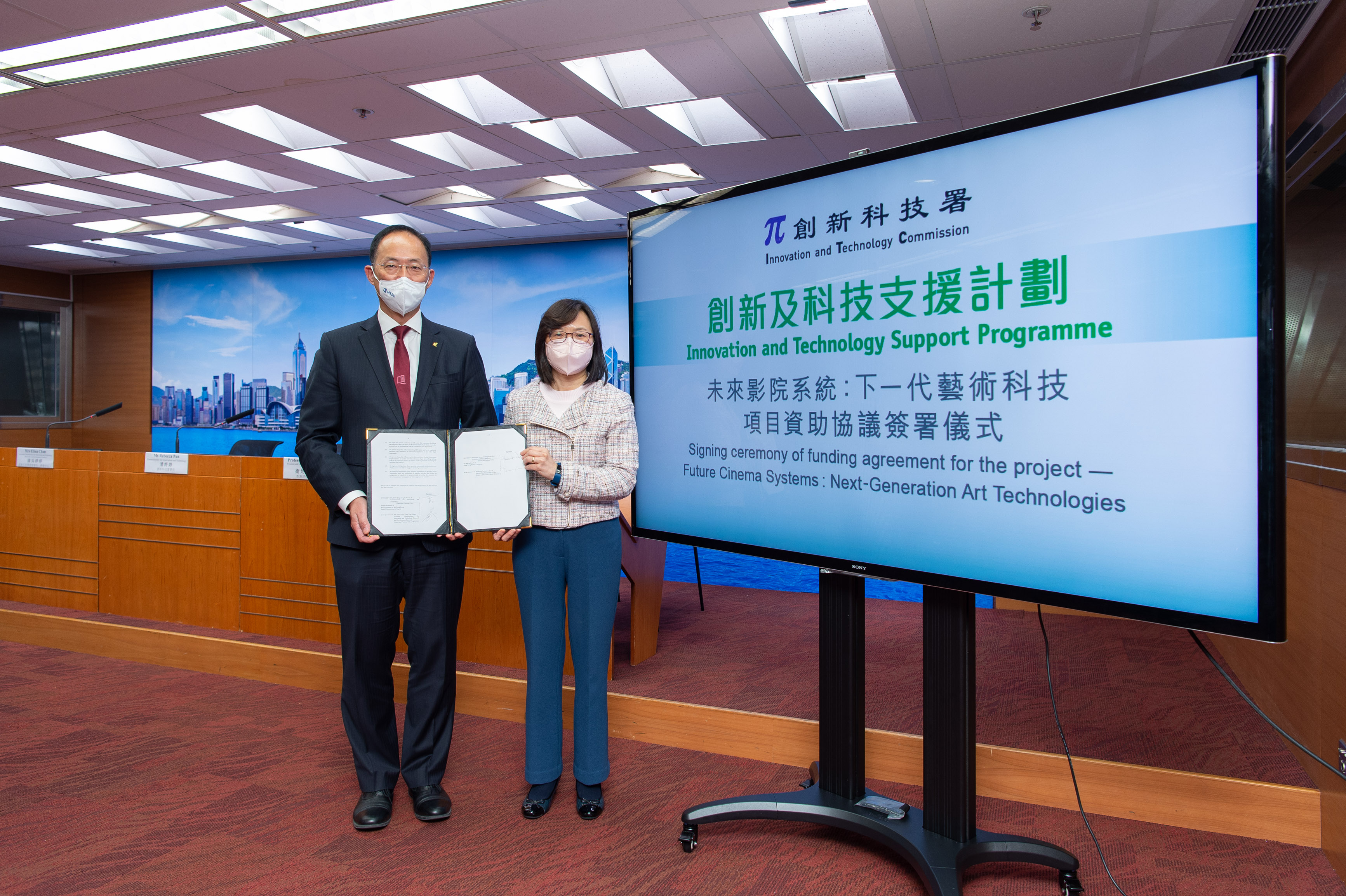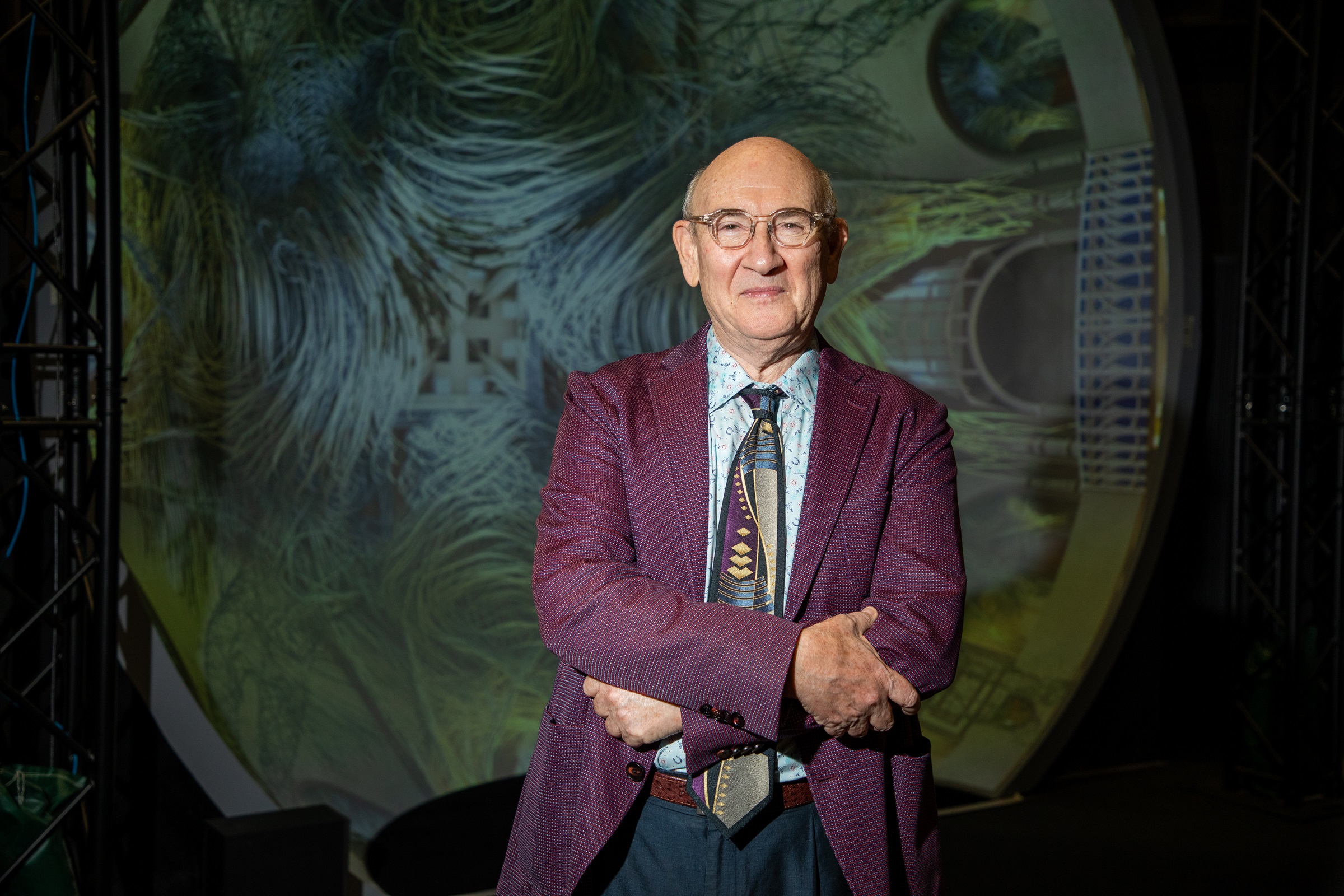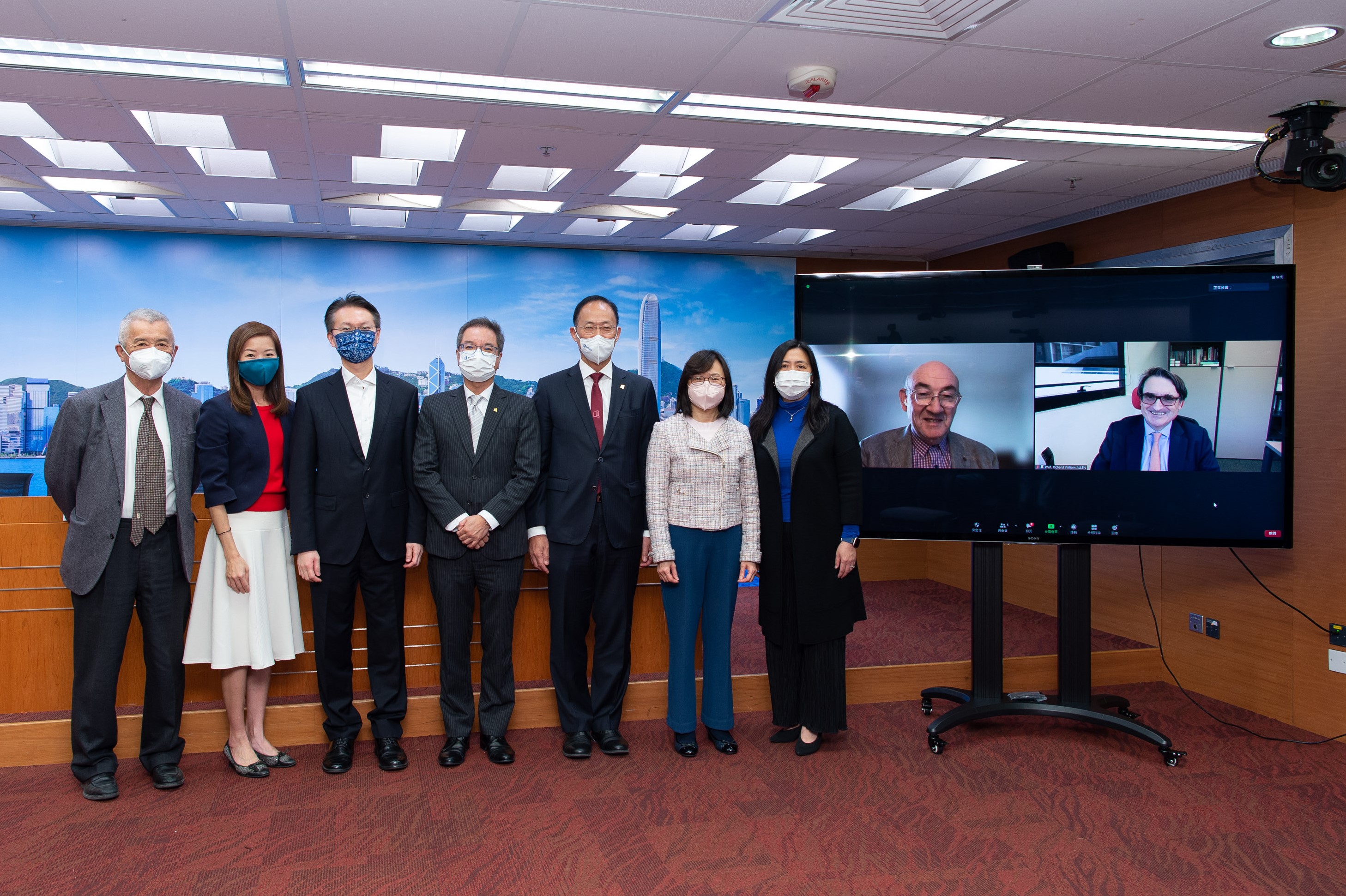Press Release
HKBU-led project secures HK$35.4 million ITSP funding to construct next-generation Future Cinema System
Monday, 12 December 2022
A novel, farsighted art-tech project led by Hong Kong Baptist University (HKBU) has been awarded HK$35.4 million in funding from the Innovation and Technology Support Programme (ITSP) under the Innovation and Technology Commission (ITC) of the HKSAR Government. This is the art-tech project funded by ITC with the largest approved amount.
The two-year “Future Cinema Systems: Next-Generation Art Technologies” project is being led by HKBU in collaboration with City University of Hong Kong and École Polytechnique Fédérale de Lausanne in Switzerland. It is a pioneering attempt to develop and construct a “Future Cinema System” (FCS), an integrated system for artists and the creative industries to meet the growing demand for new interactive immersive forms of cultural experience, as well as entertainment and education.
At the agreement signing ceremony organised by the ITC today (12 December), Professor Alexander Wai, President and Vice-Chancellor of HKBU said: “HKBU has been actively developing arts and technology, integrating arts and science across disciplines to create novel arts and cultural experiences, and at the same time to nurture the younger generation of arts knowledge and innovative thinking. This project is not simply an enhancement in digitalisation and intelligent technologies in arts, but a powerful tool for art innovation and development with boundless applications and substantial values, to create innovative multi-modal frameworks for artists and the creative industries.”
Ms Rebecca Pun, Commissioner for Innovation and Technology, said: “This cross-territorial research project, carried out by the Hong Kong Baptist University in collaboration with the City University of Hong Kong and the École Polytechnique Fédérale de Lausanne in Switzerland, will use the latest technologies to develop the FCS. I am very pleased to see that this project has gained support from various organisations in Hong Kong. I expect that FCS, upon successful commercialisation, will bring infinite possibilities to the development of cultural art and creative industries in Hong Kong and quality employment opportunities. It will also create considerable value to the education, tourism and sports industries, etc.”
Powered by advanced technologies, including artificial intelligence, computer vision, deep learning and virtual reality, the FCS comprises three-dimensional interactive immersive visualisation environments that integrate all forms of real-time and pre-recorded content with a broad range of wearable sensors and biometric devices.
The project leader, Professor Jeffrey Shaw, Chair Professor of the Academy of Visual Arts at HKBU, said: “This vanguard project opens the door to boundless applications in the arts and creative industries. The FCS will create profound virtual experiences for tangible and intangible cultural heritage; innovate performative platforms for theatre, dance, music and sports; and transform the world’s multimedia archives into explorable post-cinematic encounters.”
With the construction of the FCS, three integrated technological innovations will be delivered in the fields of visualisation, human-computer interaction and co-evolutionary narrative.
The visualisation innovation comprises a set of immersive, interactive visualisation resources for producing a 360-degree, three-dimensional and truly immersive environment. This next-generation system involves the installation of over 400 LED panels, bringing high-resolution stereoscopic cognition and a shared immersive experience to groups of participants, including those locally and people telematically connected between multiple locations.
The human-computer interaction innovation contains a set of novel tracking sensing and biometric technologies that can record human conditions, responses and movements. One such technology will track the physical position and motion sensing of the viewers to understand what they are looking at, how they are behaving with respect to other viewers, and most importantly, how they are responding to the content being presented to them.
The co-evolutionary narrative innovation will comprise the software intelligence that will enable the audiovisual manifold to react and respond to the sensory prompts provided by the participants. It will provide a mixed reality interface whereby the virtual world can be influenced by, and in turn influence interactions with, the public in the real world, and its virtual agents will be capable of initiating purposeful and evolving interactions with their audiences.
The deliverables of the project will first be deployed at selected facilities in Hong Kong, such as the Hong Kong International Airport, M+ Museum and Tai Kwun.
– END –



